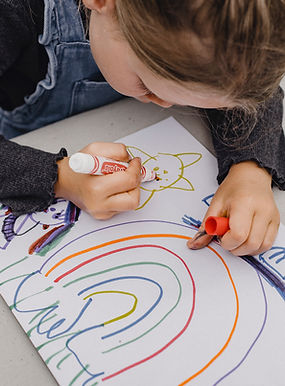Learn


Education is key to preventing abuse. Learn what you can do to stop abuse.
Protection Tips For Sexual Abuse
-
Talk to kids about personal (body) safety by initiating ongoing age-appropriate conversations.
-
Teach kids not to keep secrets and to report unwelcoming touching or sexual behavior to a trusted adult.
-
Know everything you can about the people who care for your children. Ask your child about what he/she does when with a babysitter, at a friend’s house, etc.
-
Select activities for children through organizations that carefully screen their staff and volunteers who work with kids. Youth-serving organizations should have policies that discourage one-on-one isolated interactions between children and adults.
-
Use “What If” situations with younger children identify appropriate safety strategies. “What if you become lost in the store?” “What if you are at a friend’s house and feel uncomfortable?” Create (and practice) an action plan so children know how to get help.
-
Monitor children’s online activity. Discourage children from posting personal information or photos online. Teach children to end any online communication with an unknown person that asks for identifying information or is sexual in nature.
Tips to Foster Nurturing Families
-
Educate yourself about normal child development. Caretaking can become frustrating if an adult has unreasonable expectations about a child’s behavior.
-
Learn and utilize effective discipline strategies that help children develop their own self-control. Do not use hitting, whipping, etc. which are linked to increased aggression and antisocial behavior. The goal of discipline is to teach appropriate behavior, not just “punish” wrongdoing.
-
Practice self-care. Parents and caretakers need to attend to themselves to handle the many stressors life can bring. Whether through relaxation, pursuit of a personal interest or using creative energy, adults who nourish themselves are better equipped to handle the many challenges of parenthood.
-
Ask for help. It’s okay to ask for help if you need a break, need advice or need assistance such as financial, safe shelter, food, healthcare, etc. Your local children’s advocacy center can help identify community agencies that provide such assistance.
Possible indicators of child abuse or neglect:
-
Unexplained injuries
-
Changes in emotional behavior, including withdrawal, fear, anxiety or aggression
-
Fear of going home with a certain person
-
Changes in school performance or frequent absences from school
-
Changes in sleeping patterns, nightmares
-
Regressive behaviors such as fear of dark, fear of strangers or loss of acquired language
-
Demonstrates bizarre or unusual sexual knowledge or behaviors
-
Presence of a sexually transmitted disease or infection
-
Disregard for physical hygiene
-
Sudden changes in eating
-
Begs for or steals food
-
Lacks medical or dental care
-
Risk-taking behaviors, such as alcohol or drug use, running away
-
If a child tells you about abuse, listen. Believe. Children rarely lie about abuse. Reassure the child it’s not his/her fault. Report the abuse to the authorities.
.png)